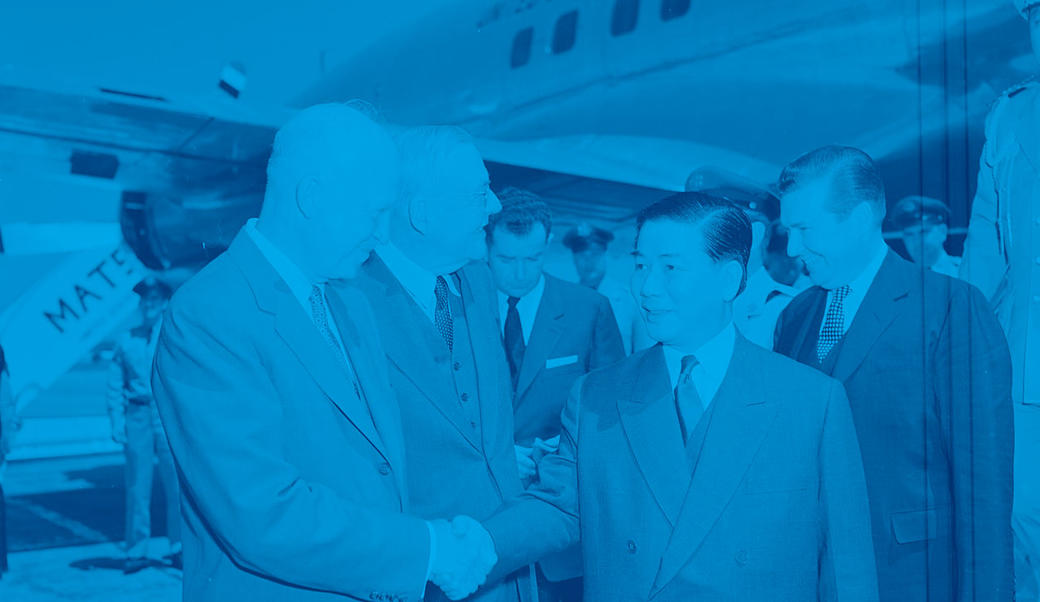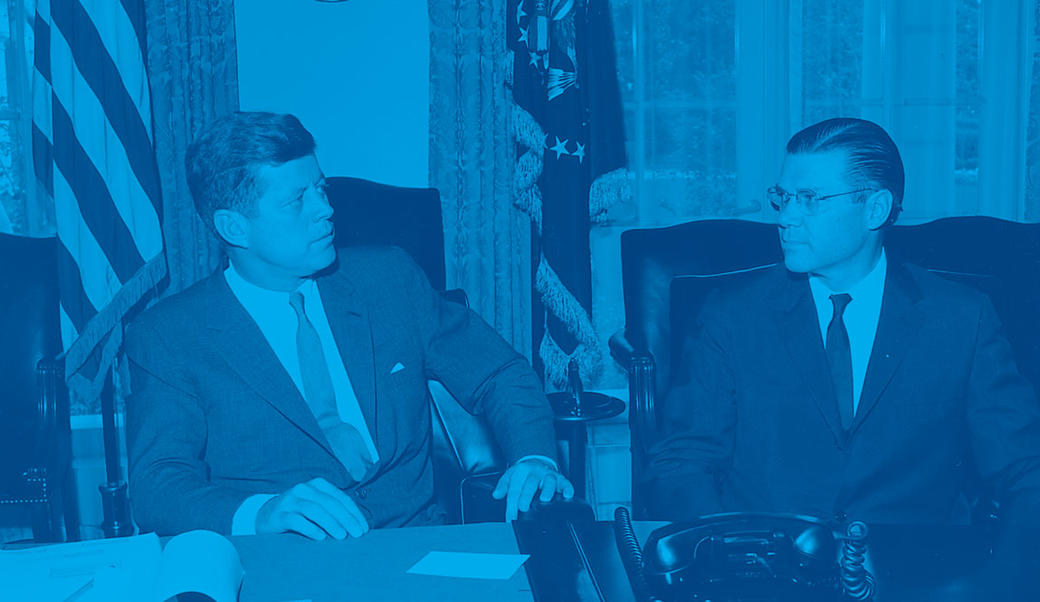John F. Kennedy: Domestic Affairs
Kennedy's domestic agenda, outlined in his “New Frontier” acceptance speech at the Democratic National Convention in July 1960, faced a difficult passage through Congress. The president was unable to call on the Democratic majority in Congress to support his most progressive legislative reforms, and many Southerners in his own party—several of whom chaired its most powerful committees—were suspicious of Kennedy, his northeast establishment background, and his domestic priorities. Time and again, Kennedy thought he had little choice but to compromise on his legislative program.
Economic and Legislative Challenges
Kennedy took office in the depths of the fourth major recession since World War II. Business bankruptcies had reached their highest level since the 1930s, farm incomes had decreased 25 percent since 1951, and 5.5 million Americans were looking for work. To stimulate the economy, Kennedy pursued legislation to lower taxes, protect the unemployed, increase the minimum wage, and energize the business and housing sectors. Kennedy believed these measures would launch an economic boom that would last until the late 1960s.
His advisers thought it possible to “fine tune” the economy through fiscal and monetary adjustments. Kennedy accepted their advice and was impressed with their expertise, which seemed to bear fruit. Partly as a result of the administration's efforts to pump money into domestic and military spending, the recession faded by the end of Kennedy's first year in office. The president also proposed new social programs including federal aid to education, medical care for the elderly, urban mass transit, a Department of Urban Affairs, and regional development in Appalachia.
Lacking deep congressional support, however, Kennedy's programs encountered resistance. He did manage an increase in the minimum wage, but a major medical program for the elderly went nowhere. Attempts to cut taxes and broaden civil rights were watered down on Capitol Hill. Southern Democrats killed the proposal for a Department of Urban Affairs because they thought Kennedy would appoint an African American as its first secretary. The education bill foundered on the question of aid to parochial schools; Kennedy, as a Catholic, opposed such aid to maintain his credibility with the electorate. His successor as president—a Protestant—was under no such constraints and would pass a bill providing aid for parochial education. On the positive side of the ledger, the government undertook regional development in Appalachia, an initiative that would have a major impact over the next three decades in reducing poverty in the region.
Civil Rights
But by far the most volatile—and divisive—domestic issue of the day was civil rights. African Americans were striving to reverse centuries of social and economic hardship, and activism against legalized racism was growing. This activism was troubling to many whites, particularly in the South. Kennedy's role—or lack of it—in this great crusade remains controversial. In short, he concentrated more on enforcing existing civil rights laws than on passing new ones.
Moreover, the president had to bow to the custom of “senatorial courtesy” and appoint federal judges in the South who were acceptable to Southern Democratic senators. These judges were opposed to civil rights enforcement, and their record was much worse than that of judges appointed in the South by President Dwight Eisenhower, a Republican who was under no such party constraints. On several occasions, Kennedy invoked some of the highest powers of his office to send troops to Southern states that were refusing the racial integration of their schools.
In September 1962, a long-running effort by James Meredith, a black Mississippian and veteran of eight years in the US Air Force, to enroll at the traditionally white University of Mississippi (Ole Miss) came to head. When Governor Ross Barnett of Mississippi defied federal court rulings allowing Meredith to enroll at the university, Kennedy, through his brother Robert, the attorney general, federalized the Mississippi National Guard and ordered an escort of federal marshals to accompany Meredith to the campus. Meredith finally enrolled on October 1, 1962, but not without a violent riot that took thousands of guardsmen and armed soldiers fifteen hours to quell. Hundreds were injured, and two died.
During 1963, the civil rights struggle grew increasingly intense and occasioned increasing violence. Images of black citizens, including children, being attacked by dogs and hosed down by water canons in Birmingham, Alabama, shocked Americans. For their part, African American activists, alongside Dr. Martin Luther King Jr., proclaimed their impatience with “tokenism and gradualism . . . We can't wait any longer.” From the persistence of the Freedom Riders in 1961 seeking to desegregate buses in the South—in the face of great personal peril—to the huge “March on Washington” in August 1963 at which King delivered his “I Have a Dream” speech to an audience of a quarter of a million people, it was clear that the civil rights movement was not going to fade away and was, in fact, galvanizing. And when four children were killed that September in a racially motivated bombing of a church in Birmingham, Alabama, Kennedy once again chose to intervene.
Kennedy's political strategy had been to delay sending a civil rights bill to Congress until his second term, when he could afford to split his party and pick up the backing of moderate Republicans to pass the measure. He felt that if he pursued such legislation in his first term, the rest of his program would suffer. However, African Americans remained frustrated by the political maneuvering and insisted on immediate action to protect their rights. Following the June 11, 1963, confrontation with Alabama governor George C. Wallace over the integration of that state’s flagship university, as well as the murder of Mississippi NAACP field director Medgar Evers early the next morning, Kennedy submitted a civil rights bill to Congress, which became law after his death. In a televised speech announcing his decision, he observed that the grandchildren of the slaves freed by Lincoln “are not yet freed from the bonds of injustice.”




